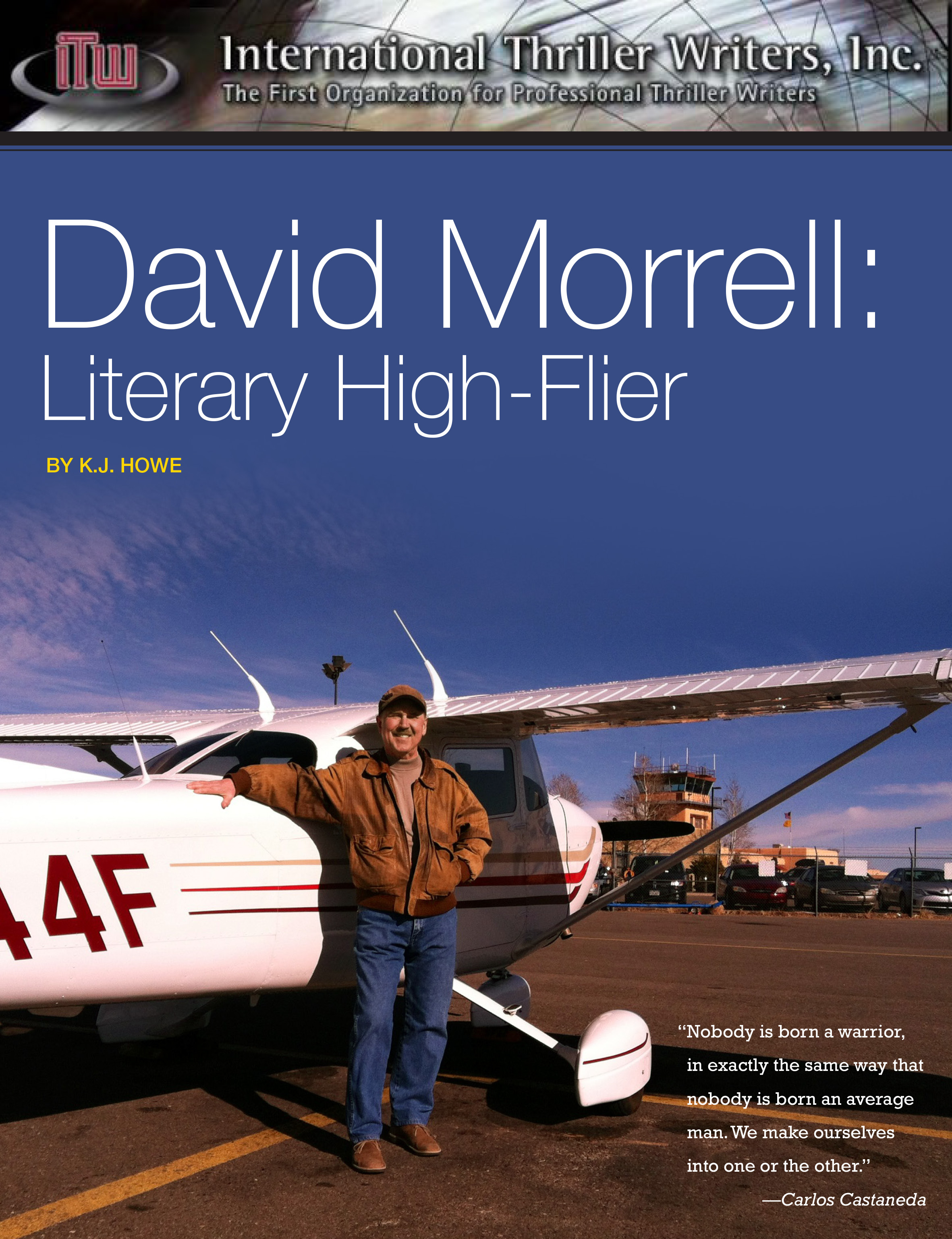About
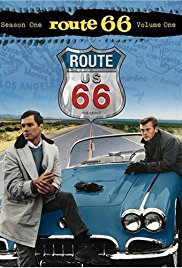 David Morrell is the award-winning author of First Blood, the novel in which Rambo was created. He was born in Kitchener, Ontario, Canada. In 1960, at the age of seventeen, he became a fan of the classic television series, route 66, about two young men in a Corvette convertible traveling the United States in search of America and themselves. The scripts by Stirling Silliphant combined action with ideas and so impressed Morrell that he decided to become a writer. (Click here to read Morrell’s essay about this remarkable series and to see a neat photo of Morrell with Silliphant on the beach at Malibu.)
David Morrell is the award-winning author of First Blood, the novel in which Rambo was created. He was born in Kitchener, Ontario, Canada. In 1960, at the age of seventeen, he became a fan of the classic television series, route 66, about two young men in a Corvette convertible traveling the United States in search of America and themselves. The scripts by Stirling Silliphant combined action with ideas and so impressed Morrell that he decided to become a writer. (Click here to read Morrell’s essay about this remarkable series and to see a neat photo of Morrell with Silliphant on the beach at Malibu.)
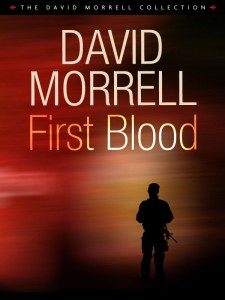 In 1966, the work of another writer (Hemingway scholar Philip Young) prompted Morrell to move to the United States, where he studied with Young at Penn State and received his M.A. and Ph. D. in American literature. There, he also met the esteemed science-fiction author William Tenn (real name Philip Klass), who taught Morrell the basics of fiction writing. The result was First Blood, a ground-breaking novel about a returned Vietnam veteran suffering from post-trauma stress disorder who comes into conflict with a small-town police chief and fights his own version of the Vietnam War.
In 1966, the work of another writer (Hemingway scholar Philip Young) prompted Morrell to move to the United States, where he studied with Young at Penn State and received his M.A. and Ph. D. in American literature. There, he also met the esteemed science-fiction author William Tenn (real name Philip Klass), who taught Morrell the basics of fiction writing. The result was First Blood, a ground-breaking novel about a returned Vietnam veteran suffering from post-trauma stress disorder who comes into conflict with a small-town police chief and fights his own version of the Vietnam War.
That “father” of modern action novels was published in 1972 while Morrell was a professor in the English department at the University of Iowa. He taught American literature there from 1970 to 1986, simultaneously writing other novels, many of them international bestsellers, including the classic spy trilogy, The Brotherhood of the Rose (the basis for the only television mini-series to premier after a Super Bowl), The Fraternity of the Stone, and The League of Night and Fog.
Eventually wearying of two professions, Morrell gave up his academic tenure in order to write full time. Shortly afterward, his fifteen-year-old son Matthew was diagnosed with a rare form of bone cancer and died in 1987, a loss that haunts not only Morrell’s life but his work, as in his memoir about Matthew, Fireflies, and his novel Desperate Measures, whose main character lost a son.
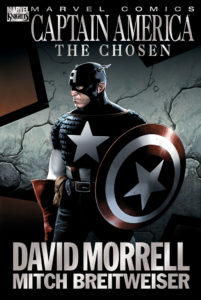 “The mild-mannered professor with the bloody-minded visions,” as one reviewer called him, Morrell is the author of more than thirty books, including such The Naked Edge, Creepers, and The Spy Who Came for Christmas (set in Santa Fe, New Mexico, where he lives). Always interested in different ways to tell a story, he wrote the six-part comic-book series, Captain America: The Chosen, the two-part comic-book series, Spider-Man: Frost, and the standalone comic book, Savage Wolverine:Feral. His writing book, The Successful Novelist, analyzes what he has learned during his four decades as an author.
“The mild-mannered professor with the bloody-minded visions,” as one reviewer called him, Morrell is the author of more than thirty books, including such The Naked Edge, Creepers, and The Spy Who Came for Christmas (set in Santa Fe, New Mexico, where he lives). Always interested in different ways to tell a story, he wrote the six-part comic-book series, Captain America: The Chosen, the two-part comic-book series, Spider-Man: Frost, and the standalone comic book, Savage Wolverine:Feral. His writing book, The Successful Novelist, analyzes what he has learned during his four decades as an author.
 Morrell is a co-founder of the International Thriller Writers organization. Noted for his research, he is a graduate of the National Outdoor Leadership School for wilderness survival as well as the G. Gordon Liddy Academy of Corporate Security. He is also an honorary lifetime member of the Special Operations Association and the Association of Intelligence Officers. He has been trained in firearms, hostage negotiation, assuming identities, executive protection, and defensive/offensive driving, among numerous other action skills that he describes in his novels. To research the aerial sequences in The Shimmer, he became a private pilot, the training for which he describes here. In 2010, he was with the first group of authors to be sent on a USO tour to a war zone (Iraq). Click here to view a short video of the tour.
Morrell is a co-founder of the International Thriller Writers organization. Noted for his research, he is a graduate of the National Outdoor Leadership School for wilderness survival as well as the G. Gordon Liddy Academy of Corporate Security. He is also an honorary lifetime member of the Special Operations Association and the Association of Intelligence Officers. He has been trained in firearms, hostage negotiation, assuming identities, executive protection, and defensive/offensive driving, among numerous other action skills that he describes in his novels. To research the aerial sequences in The Shimmer, he became a private pilot, the training for which he describes here. In 2010, he was with the first group of authors to be sent on a USO tour to a war zone (Iraq). Click here to view a short video of the tour.
Morrell's latest novels, Murder as a Fine Art, Inspector of the Dead, and Ruler of the Night are Victorian mystery/thrillers that explore the fascinating world of 1850s London. Based on years of research, they attempt to make readers believe they are truly on those harrowing, fogbound streets. Both novels feature a controversial, brilliant literary figure of the era, Thomas De Quincey, who wrote the sensational memoir, Confessions of an English Opium-Eater, and invented the true-crime genre in his equally sensational essay, "Postscript: On Murder Considered as One of the Fine Arts." He also invented the concept of the subconscious a half century before Freud did.
Morrell is an Edgar, Anthony, Thriller, and Arthur Ellis finalist, a Nero and Macavity winner, and a three-time recipient of the distinguished Bram Stoker Award from the Horror Writers Association. The International Thriller Writers organization gave him its prestigious career-achievement Thriller Master Award. Bouchercon, the world's largest crime-fiction convention, gave him its Lifetime Achievement Award. He also received an RT Book Reviews "Thriller Pioneer" award and a Comic-Con Inkpot award for "outstanding achievement in action/adventure." For a full list of his awards and honors, please go to the link at the left of this page (or below if on mobile). His short stories have appeared in numerous Year’s Best collections. With eighteen million copies in print, his work has been translated into thirty languages.
For installments in Morrell's autobiography, please look at the following:
Fireflies: A Father’s Tale of Love and Loss
The Successful Novelist
Black Evening (introduction)
Nightscape (introduction)
American Fiction, American Myth: Essays by Philip Young (introduction)
The Hundred-Year Christmas (introduction)
Nelson Riddle: The Man Behind the Music (introduction)
The Interrogator (introduction)
Captain America: The Chosen (afterword)
John Barth: An Introduction (foreword)
Stars in My Eyes: My Love Affair with Books, Movies, and Music
David Morrell is the critically author of First Blood, the novel in which Rambo was created. He holds a Ph. D. in American literature from Penn State and was a professor in the English department at the University of Iowa. His numerous New York Times bestsellers include the classic spy novel, The Brotherhood of the Rose(the basis for the only television mini-series to be broadcast after a Super Bowl). An Edgar and Anthony finalist, a Nero and Macavity winner, Morrell is a recipient of three Bram Stoker awards from the Horror Writers Association and the prestigious Thriller Master award from the International Thriller Writers organization. His writing book, The Successful Novelist: A Lifetime of Lessons about Writing and Publishing, discusses what he has learned in his more than four decades as an author. He lives in Santa Fe, New Mexico.
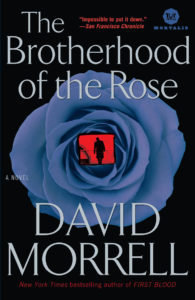
What made you decide to become a writer?
When I was seventeen, I was almost a high-school dropout. My school’s principal told me that I’d never amount to anything. Then I happened to watch a new TV series that premiered in the fall of 1960. It was called Route 66 and depicted the adventures of two young men driving across the United States in search of America and themselves. The series was filmed on location and had a mixture of action and ideas that I fell in love with. I wrote to the show’s head writer Stirling Silliphant, asking how I could learn to do what he did. He sent me a long encouraging letter. After that, I was burning with determination and never stopped wanting to tell stories. Years later, Stirling not only became my friend but was the executive producer of the miniseries of my novel, The Brotherhood of the Rose.
Who is Philip Young?
Like Stirling Silliphant, Young was extremely important to me. In 1965, as an undergraduate English student at a small college (St. Jerome’s) in Ontario, Canada, I came across Young's book, Ernest Hemingway. A Hemingway enthusiast, I was first attracted to the book because of its subject. But Young had such an engaging style and such interesting ideas that I instantly knew I had to study with him. So I went home and asked my pregnant wife if she would give up her job as a high-school history teacher and travel with me to the United States, where Young taught at Penn State. To my surprise, she agreed. That was a life-changing moment. With most of our possessions crammed into a VW bug, we (and our newborn daughter) moved to the U.S. in 1966. Eventually I progressed from being a student in Young's classes to being his graduate assistant. After his first wife died, my wife and I helped take care of his home and his grade-school-aged son so that he would have the freedom to teach and do research. He was like a second father to me. After Young died in 1991, I worked with another of his students, Sandra Spanier, now a professor at Penn State, to edit a volume of his wonderful essays, American Fiction, American Myth.
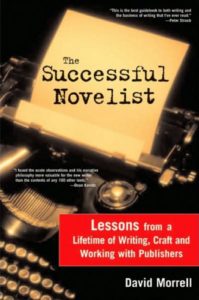 Your debut novel, First Blood, is dedicated to Philip Klass and William Tenn. Who are they?
Your debut novel, First Blood, is dedicated to Philip Klass and William Tenn. Who are they?
At Penn State, I met a fiction writer named Philip Klass. He was the first professional writer I’d ever met. As William Tenn, he had written numerous, admired science fiction stories in the fifties and was now teaching fiction writing. He had a theory that we all had a secret that we didn’t know about and that the secret was like a ferret darting around inside us, desperate not to be discovered. He told me that searching for that ferret, I would find my subject matter and write fiction that was distinctly my own. Basically it was a form of fiction-writing as self-psychoanalysis. As with Stirling Silliphant and Philip Young, I’m immensely indebted to him. What he taught me I explain at length in my writing book, The Successful Novelist.
Was it difficult for you to get an agent?
I was very lucky. In 1969, Philip Klass bought a house near the Penn State campus. He invited his agent, Henry Morrison, and a writer friend, Donald E. Westlake, for a house-warming party. After they drove all the way from New York City, Klass introduced them to me. Needless to say, I was thrilled to meet an agent. Donald E. Westlake was a legendary crime author. I was in awe. Then Klass surprised me by telling them that I was working on a novel he thought was exciting and would they please listen to my description of it. I was not at all prepared. To complicate matters, Henry and Don chose to sit on a staircase that led to the house’s only bathroom on the second floor. Dozens and dozens of people trooped up and down, interrupting me as I described the plot of First Blood. I have no idea what I said, but after I finished, they were silent for the longest while. Boy, I really ruined that chance, I thought. Henry looked at Don and asked, “What do you think?” Don answered, “I think it’s a hell of an idea.” Henry added, “So do I. When you finish the novel, send it to me.”
 What about actually getting published? Was that difficult for you?
What about actually getting published? Was that difficult for you?
Again, I was lucky. I started First Blood in 1968, the year Bobby Kennedy and Martin Luther King, Jr., were assassinated. It was a year of turmoil, with hundreds of riots in American cities. That turmoil was in my mind as I worked on the book. I reached the halfway mark in 1969, but then I needed to postpone it so that I could write my doctoral dissertation on John Barth. I graduated in 1970 and went to teach at the University of Iowa. There, I immediately went back to writing First Blood and finished it in June of 1971. Along the way, I kept in touch with agent Henry Morrison about my progress. I sent the novel to him, and six weeks later, in August, he phoned to say that he had a publisher for the book. At first, I thought he was saying that he’d found a publisher for my John Barth dissertation. He burst out laughing and said, “No, your novel. Your novel.”
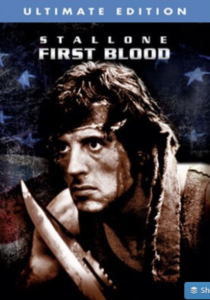 How did the movie of First Blood happen?
How did the movie of First Blood happen?
That was a saga. My agent submitted the manuscript to various studios. We soon heard that producer/director Stanley Kramer (The Defiant Ones, Mad Mad Mad World, Guess Who’s Coming to Dinner) wanted to buy the movie rights. I was very excited. After Kramer made a verbal commitment, we took the book off the film market, declining other offers. Then we waited for Kramer’s contract. And waited. It turned out he didn’t have any financing and was basically lying to us. The experience was disappointing but educational. By then, First Blood had been published. Producer Lawrence Turman (The Graduate) came across the novel in a bookstore (this never happens) and thought it would be good for writer/director Richard Brooks and Columbia Pictures. Brooks worked on the script for a year. For whatever reason, Columbia sold the project to Warner Bros. Then Warner Bros. sold it to someone else. Eventually there were 26 scripts. Paul Newman was associated with it for a time. So was Steve McQueen, with Sydney Pollack directing. It took ten years before the film, with Sylvester Stallone, appeared on the screen. I tell a fuller story of this in my introduction to my novel, First Blood, and in the “Rambo and the Movies” chapter of my writing book, The Successful Novelist.
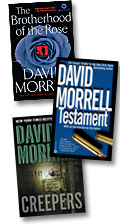 What other books have you sold to the movies?
What other books have you sold to the movies?
The Brotherhood of the Rose was a top-rated NBC television mini-series, the only mini-series to be broadcast after a Super Bowl. A short story, “But at My Back I Always Hear,” was filmed as an episode of the Showtime series, The Hunger. Apart from those, more than half my books have been optioned or else sold outright to film studios, but none got beyond the development stage. Some books (Testament, The Totem, and Assumed Identity) have been optioned several times. Michael Douglas bought the movie rights to Extreme Denial, but I don’t think anything will ever happen with that. MGM optioned Burnt Sienna for Pierce Brosnan when he was James Bond, but then Pierce stopped being James Bond, and MGM let the option lapse. Jessica Simpson’s father, Joe, a presence in the movie business, owns the rights to Creepers. In 2008 alone, I signed five movie contracts. But what happens is that studio heads leave, and the projects they championed are cancelled. Or trends change. These days, sequels, remakes, and comic-book heroes are the trend. Two years from now, it’ll be something else. Meanwhile, directors and actors are known for changing their minds a lot. It’s a shifting, unpredictable industry. Out of 100 movie/novel deals, perhaps only five films get made, and four of those five will probably be terrible. I love movies, but I’m always skeptical about the industry.
Is the television adaptation of The Brotherhood of the Rose available for home video?
Not commercially. During the videotape era, there was a VHS, but I don’t recommend looking for it. It cut the four hours into two and was incomprehensible. There are a lot of pirated full-length copies floating around the Internet, however. Of course, you never know what kind of video quality you’ll get. I wrote four drafts of the script for the miniseries. My friend Stirling Silliphant wrote a draft. Then Gy Waldron wrote a draft and received credit.
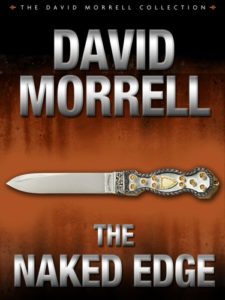 Do you like to do research?
Do you like to do research?
I’m a Method actor type of author and love to immerse myself in a book’s subject. The research is often dramatic, as when I attended the G. Gordon Liddy Academy of Corporate Security. The faculty for this legendary three-week course consisted of former members of the CIA, FBI, Drug Enforcement Administration, US Marshals Service, the Mossad, and so on. My novel Assumed Identity was based on training I received about assuming identities. The Fifth Profession, The Protector, and The Naked Edge came from instruction I received about how protective agents operate. I’ve had extensive firearms training as well as instruction in surveillance, electronic eavesdropping, hostage negotiation, industrial espionage, and a lot of other subjects.
What were your most memorable research experiences?
I spent a week at the Bill Scott Raceway in West Virginia, where numerous government agencies send their operatives to learn how to crash through barricades, do 180 degree spins, and car fight at fifty miles an hour. I broke my collarbone in a knife-fighting class taught by knife maker Ernest Emerson. For Testament, I learned wilderness survival from the National Outdoor Leadership School, spending thirty days in the Wind River Mountains of Wyoming. At the end, the instructors took away my food and pointed at a spot on a map where they said they’d pick me up in 3 days. The location was fifty miles away on the other side of the Continental Divide. It was interesting (to put it mildly) not to eat for three days while climbing up and down mountains. For the airplane sequences in The Shimmer, I earned my pilot’s license. I’m also an honorary lifetime member of the Special Operations Association and the Association of Intelligence Officers. For details about my spy training, please read the introduction to my espionage e-story, The Interrogator, which is described in the E-WORKS section of this website.
Most of your books are standalones, but do you have any series?
A few. I try not to repeat myself on the theory that it’s better to look forward than back. But occasionally characters fascinate me enough to make me want to 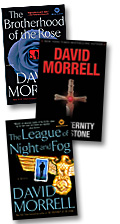 return to them. There’s the Rambo series, of course. After my novel First Blood, I did novelizations for Rambo (First Blood Part II) and Rambo III, which I talk about on the Rambo page of this site. Then there’s The Brotherhood of the Rose, The Fraternity Of The Stone, and The League Of Night And Fog, a trilogy in which the first two novels are stand-alones, but their main characters meet in the third book. A short story, “The Abelard Sanction,” ties up a loose plot thread in the Brotherhood series. The characters in Creepers are repeated in Scavenger. The characters in The Protector are repeated in The Naked Edge and in three short stories, “Blue Murder,” “The Attitude Adjuster,” and “The Controller.”
return to them. There’s the Rambo series, of course. After my novel First Blood, I did novelizations for Rambo (First Blood Part II) and Rambo III, which I talk about on the Rambo page of this site. Then there’s The Brotherhood of the Rose, The Fraternity Of The Stone, and The League Of Night And Fog, a trilogy in which the first two novels are stand-alones, but their main characters meet in the third book. A short story, “The Abelard Sanction,” ties up a loose plot thread in the Brotherhood series. The characters in Creepers are repeated in Scavenger. The characters in The Protector are repeated in The Naked Edge and in three short stories, “Blue Murder,” “The Attitude Adjuster,” and “The Controller.”
Which authors influenced you the most?
At Penn State, I wrote my Master’s thesis about Hemingway’s style. While I don’t pretend to have Hemingway’s skill, I learned a lot from him about treating action seriously. You never catch him using pulp phrases like “A shot rang out.” In books like A Farewell to Arms, To Have and Have Not, and For Whom the Bell Tolls, he made readers smell the gunsmoke and hear the shots. His palpable vividness without clichés became my goal. I learned pace from James M. Cain, whose The Postman Rings Twice and Double Indemnity are models of efficient storytelling. (Interestingly, when Stephen King taught fiction writing at the University of Maine, he used First Blood and Double Indemnity as his only textbooks.) I learned how to write outdoor thrillers from Geoffrey Household’s Rogue Male and Watcher in the Shadows. Household uses an almost mystical approach to outdoor action scenes, as if Wordsworth had returned and become a thriller writer. I wrote an essay about Household’s Rogue Male for Thrillers: 100 Must-Reads, a non-fiction collection I co-edited with Hank Wagner. That essay is available for free on this website, as is Steve Berry’s essay about First Blood, also originally published in Thrillers: 100 Must-Reads.
What's your next project?
My next novel is called Murder as a Fine Art. It's a brooding, disturbing, hair-raising thriller set in 1854 London. Part of the reason there's a gap between The Naked Edge in 2010 and this new book, which will be published in June of 2013, is that the research took me a long time. Many novels written about the Victorian era are costume dramas with the characters speaking as if they're in the twenty-first century. But I wanted readers to feel that they were actually on the streets of 1854 London. That meant a total immersion in the subject. For a year, everything I read and thought about was related to that city and that year. Its main character is the most notorious English author of the mid-1800s, Thomas De Quincey, who wrote a scandalous bestseller, Confessions of an English Opium-Eater, the first book about drug addiction, although the Victorians had no concept of addiction as we know it. De Quincey was fifty years ahead of Freud in formulating theories about nightmares and the subconscious. He was also an expert in murder, particularly the Ratcliffe Highway mass murders of 1811. Those murders were so sensational that they literally paralyzed England. Their effect wasn't equaled until the Jack the Ripper slayings at the end of the century. De Quincey wrote the first-true crime essay about those murders, “On Considering Murder as One of the Fine Arts," from which I take my book's title.
You said that the research for Murder as a Fine Art is one of the reasons there's a gap between it and The Naked Edge. Is there another reason?
My debut novel, First Blood, was published in 1972. I'm now in my fifth decade as an author. I decided that it was time to revisit all my books, essays, and short stories and organize them so that readers would be able to find them easily and understand how the various titles related to one another. This new website is part of that effort. It clearly categorizes what I've written and provides a ton of information about the many facets of my work. The e-book revolution also motivated me. Over the years, as I moved from publisher to publisher, my books came in and out of print. My friend, Donald E. Westlake, a brilliant author, once said, "If you're out of print, you're dead." But e-books make it possible for an author's work always to be available. I own the e-rights to the majority of my work, so I began releasing them in all the e-formats. That's a big job. If you look at the Complete Bibliography on my BOOKS page, you'll find 28 single-spaced pages of material. I revised the texts. I wrote introductions. I supervised the creation of new covers. It has literally taken me a couple of years to make the majority of my work available in this way, with more to come. I suppose you could say that I became my own archivist.
If there is one author who has transformed himself into a literary warrior, it’s David Morrell. David published First Blood in 1972, and he has now written over 30 books.With 18 million copies in print, this ITW Thriller Master has been translated into 26 languages.
DAVID MORRELL: COMPLETE BIBLIOGRAPHY (Jan. 1, 2018)
Born: 1943, Kitchener, Ontario, Canada
Married, with a daughter, Sarie (a son, Matthew, died: 1971-1987)
Education: B.A. (Honors English, 1966), St. Jerome's College at the University of Waterloo, Ontario, Canada
M.A. (American literature, 1967), Pennsylvania State University, thesis: "Hemingway's Early Style" (Philip Young director)
Ph.D. (American literature, 1970), Pennsylvania State University, dissertation: "John Barth: An Introduction" (Philip Young director)
Employment: Instructor (Rhetoric), Pennsylvania State University, 1969-70
Assist. Prof. (Am. Lit.), Univ. of Iowa, 1970-74
Assoc. Prof. (Am. Lit.), Univ. of Iowa, 1974-77
Full Prof. (Am. Lit.), Univ. of Iowa, 1977-86
gave up a tenured position to pursue a full-time career as a fiction writer, 1986
Taught: Modern Fiction, American Novel from 1800 to 1900, American Novel from 1900
to 1945, American Novel from 1945 to the Present, American Poetry, The Hard-Boiled Novel,
Hawthorne and Melville, Faulkner and Barth, American Realism of the Nineteenth Century
Graduate seminars on Hemingway, Faulkner, Henry James, John Barth, and Literary Archetypes
Honors: Friends of American Writers Distinguished Recognition Award, First Blood, 1973
Horror Writers Association best novella award, “Orange Is for Anguish, Blue for Insanity,” 1989
Horror Writers Association best novella award, “The Beautiful Uncut Hair of Graves,” 1991
Nominated for Horror Writers Association best novella awards, “The Shrine” and “Nothing Will Hurt You,” 1992
Nominated for World Fantasy Award best short story and best novella awards, The Hundred Year Christmas 1983 and “Dead Image” 1985
University of Iowa Distinguished Faculty Alumni Award, 1999
Love Is Murder mystery conference, Best Novel Award, The Protector, 2003
Blade Magazine’s Industry Achievement Award, 2003
Love Is Murder Best Thriller award, Creepers, 2005
Horror Writers Association best novel award, Creepers, 2005
Shocklines’ On-Line Bookstore’s Shocker Award, best novel of the year, Creepers,
2005
To continue reading and to download David's complete bibliography, click here.
Creepers chosen as one of 10 Exceptional Canadian Genre Novels. Learn more July 2018
Finalist for Arthur Ellis best short story award, Canadian Crime Writers association. “The Granite Kitchen” (Ellery Queen's Mystery Magazine), 2017
Lifetime Achievement Award at Bouchercon, the world’s largest crime-fiction conference, 2016
Finalist for International Thriller Writers best novel Thriller Award, Inspector of the Dead. 2016
Finalist for Western Writers of America Stirrup award, “20 Significant Westerns,” Roundup Magazine, 2015
Finalist for Left Coast of Crime historical mystery award, Murder as a Fine Art, 2014
Nero Award (Rex Stout Society for “literary excellence in mysteries,” Murder as a Fine Art, 2014
Macavity Sue Feder Historical Mystery Award, Murder as a Fine Art, 2014
Rose State College (Oklahoma) President’s Distinguished Author award, 2013
American Library Association reader’s guide award for best mystery, Murder as a Fine Art, 2013
Audiophile Magazine’s audio-book Earphones Award for best audio book, Murder as a Fine Art, 2013
RT (Romantic Times) Literary Pioneer Award. 2013
Finalist for Western Writers of America Stirrup award, “A Conversation with Peter Ford,” Roundup Magazine, 2012
St. Jerome’s University (Waterloo, Ontario, Canada) Distinguish Alumni Award, 2011
Nominated for Macavity award, Thrillers: 100 Must Reads, 2011
Nominated for Anthony award, Thrillers: 100 Must Reads, 2011
Nominated for Edgar award, Thrillers: 100 Must Reads, 2011
Author Co-Guest of Honor (with Peter Straub) Horror Writers Association conference, 2011
Penn State Centennial Alumni award, 2009
Backspace “Bob Kellogg Good Citizen Award for Outstanding Contribution to the Internet Writing Community,” 2009
International Thriller Writers’ Thriller Master Award, 2009
Author Guest of Honor, World Fantasy Conference, 2008
American Author’s Association Silver Quill Award, The Spy Who Came for Christmas, 2008
Friends of New Mexico Books career award, 2008
Comic-Con International’s Inkpot Award for “outstanding achievement in action/adventure,” 2006
Shocklines On-Line Bookstore’s Shocker Award, best novel of the year, Creepers, 2005
Horror Writers Association best novel award, Creepers, 2005
Love Is Murder mystery conference Best Thriller award, Creepers, 2005
Blade Magazine’s Industry Achievement Award (Rambo), 2003
Love Is Murder mystery conference, Best Novel Award, The Protector, 20
University of Iowa Distinguished Faculty Alumni Award, 1999
Nominated for Horror Writers Association best novella awards, “The Shrine” and “Nothing Will Hurt You,” 1992
Horror Writers Association best novella award, “The Beautiful Uncut Hair of Graves,” 1991
Horror Writers Association best novella award, “Orange Is for Anguish, Blue for Insanity,” 1989
Nominated for World Fantasy Award best novella award, “Dead Image,” 1985
Nominated for World Fantasy Award best short story, The Hundred Year Christmas, 1983
Friends of American Writers Distinguished Recognition Award, First Blood, 1973
